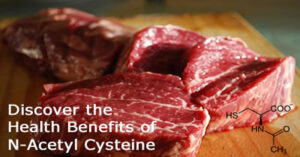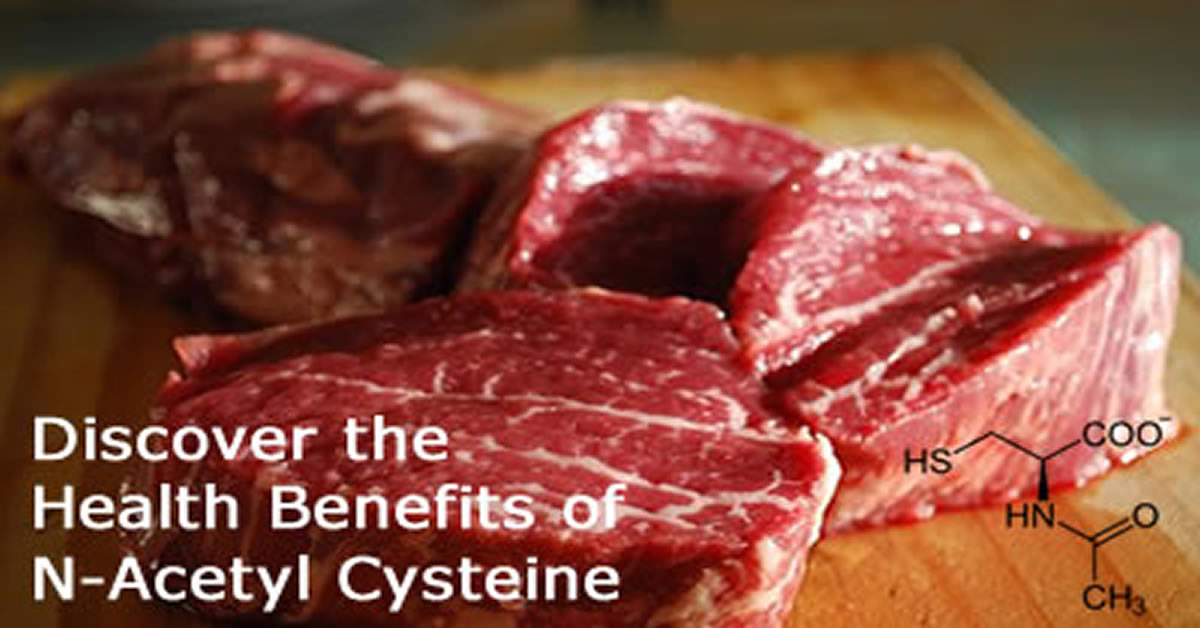N-Acetyl Cysteine (NAC): Benefits, Uses, and Immune Boosting Properties
N-Acetyl Cysteine (NAC) is a supplement that has gained popularity in recent years due to its potential health benefits. It is a modified form of the amino acid cysteine and is known for its role in supporting various aspects of health, including its immune-boosting properties. In this comprehensive article, we will explore the benefits, uses, history, effectiveness, efficacy, safety, and how to prepare and consume N-Acetyl Cysteine.
 Benefits of N-Acetyl Cysteine (NAC)
Benefits of N-Acetyl Cysteine (NAC)
NAC offers a wide range of potential benefits, making it a subject of interest in both scientific research and the wellness community. Here are some key benefits associated with N-Acetyl Cysteine:
- Antioxidant Properties: NAC is a potent antioxidant, which means it helps neutralize harmful free radicals in the body. This property can help protect cells and tissues from oxidative stress, which is linked to various chronic diseases, including cancer and cardiovascular diseases[i].
- Mucus Clearance: NAC has a unique ability to break down and thin mucus, making it easier to clear from the respiratory tract. This is why it is often used as a mucolytic agent to help individuals with respiratory conditions such as chronic obstructive pulmonary disease (COPD) and cystic fibrosis[ii].
- Liver Support: NAC is frequently used to support liver health. It helps replenish glutathione, a critical antioxidant produced by the liver, and can aid in detoxification processes. This has led to its use in cases of acetaminophen (paracetamol) overdose, a common cause of liver damage[iii].
- Mental Health: Some studies suggest that NAC may have a positive impact on mental health conditions such as depression, bipolar disorder, and obsessive-compulsive disorder (OCD). It is believed to work by modulating glutamate levels in the brain[iv].
These examples underscore the importance of referring to peer-reviewed studies to better understand the efficacy and safety of N-Acetyl Cysteine. It’s worth noting that while many studies suggest potential benefits, more research is often needed to establish conclusive evidence.
Effectiveness and Efficacy
The effectiveness of N-Acetyl Cysteine can vary depending on the condition being treated or the desired health benefit. Here are some areas where it has shown effectiveness:
- Respiratory Conditions: NAC has a well-established role in improving mucus clearance in conditions like COPD and cystic fibrosis. It is often prescribed in these cases to help patients breathe more easily.
- Liver Protection: In cases of acetaminophen overdose and certain liver conditions, NAC is considered highly effective in preventing or mitigating liver damage.
- Mental Health: While research on its use in mental health is promising, its effectiveness can vary from individual to individual. It is usually used as an adjunct to standard treatments.
- Immune Support: NAC’s role in immune support is still being explored, but some evidence suggests it may help reduce the severity and duration of respiratory infections.
It’s important to note that NAC is not a miracle cure for any condition, and its effectiveness may be influenced by various factors, including the dosage, individual physiology, and the specific health issue being addressed. Always consult with a healthcare professional before using NAC for any health concern.
Safety of N-Acetyl Cysteine
N-Acetyl Cysteine is generally considered safe when used as directed. It has been used for decades in medical settings for various purposes. However, like any supplement or medication, there are some considerations regarding its safety:
How to Prepare and Consume N-Acetyl Cysteine
N-Acetyl Cysteine is available in various forms, including capsules, tablets, and powder. The appropriate dosage can vary depending on the intended use and individual factors. It’s essential to follow the recommended dosage on the product label or the guidance of a healthcare provider.
Here are some general guidelines on how to prepare and consume NAC:
- Dosage: Typical doses for general health and antioxidant support range from 600 to 1800 milligrams (mg) per day. Dosages for specific conditions may differ.
- Form: NAC is available in various forms. Capsules and tablets are convenient for precise dosing, while powder can be mixed with water or juice for those who prefer a liquid form.
- Timing: NAC can be taken with or without food, depending on personal preference. However, taking it with a meal may help reduce the risk of gastrointestinal side effects.
- Duration: The duration of NAC supplementation can vary widely depending on the purpose. It may be used for short-term interventions (e.g., acetaminophen overdose) or as a long-term supplement for ongoing health support.
Consultation: Always consult with a healthcare provider before starting NAC supplementation, especially if you have underlying medical conditions or are taking other medications.
In conclusion, N-Acetyl Cysteine (NAC) is a versatile supplement with numerous potential benefits, including antioxidant properties, respiratory support, liver protection, and possible effects on mental health and immune function. While research in these areas is promising, it’s crucial to consult with a healthcare professional before using NAC, especially for specific medical conditions. Additionally, referencing peer-reviewed medical literature is essential for a more comprehensive understanding of its effects and safety.
[i] Reliene R, Schiestl RH. Antioxidant N-acetyl cysteine reduces incidence and multiplicity of lymphoma in Atm deficient mice. DNA Repair (Amst). 2006 Jul 13;5(7):852-9. doi: 10.1016/j.dnarep.2006.05.003. Epub 2006 Jun 15. PMID: 16781197.
[ii] Vukosavljevic B, Murgia X, Schwarzkopf K, Schaefer UF, Lehr CM, Windbergs M. Tracing molecular and structural changes upon mucolysis with N-acetyl cysteine in human airway mucus. Int J Pharm. 2017 Nov 30;533(2):373-376. doi: 10.1016/j.ijpharm.2017.07.022. Epub 2017 Jul 11. PMID: 28705614.
[iii] Ntamo Y, Ziqubu K, Chellan N, Nkambule BB, Nyambuya TM, Mazibuko-Mbeje SE, Gabuza KB, Marcheggiani F, Tiano L, Dludla PV. Drug-Induced Liver Injury: Clinical Evidence of N-Acetyl Cysteine Protective Effects. Oxid Med Cell Longev. 2021 Dec 6;2021:3320325. doi: 10.1155/2021/3320325. PMID: 34912495; PMCID: PMC8668310.
[iv] Bradlow RCJ, Berk M, Kalivas PW, Back SE, Kanaan RA. The Potential of N-Acetyl-L-Cysteine (NAC) in the Treatment of Psychiatric Disorders. CNS Drugs. 2022 May;36(5):451-482. doi: 10.1007/s40263-022-00907-3. Epub 2022 Mar 22. Erratum in: CNS Drugs. 2022 Apr 28;: PMID: 35316513; PMCID: PMC9095537.

